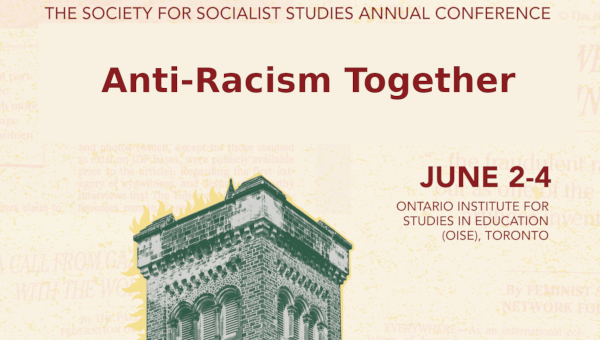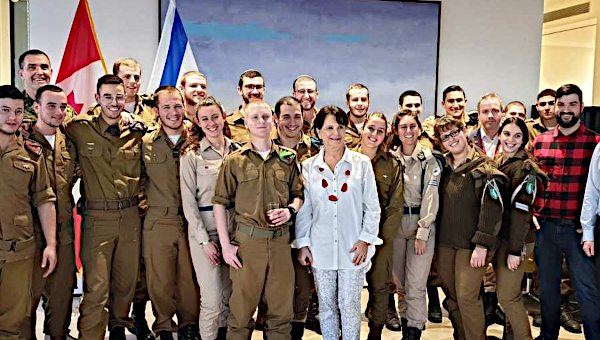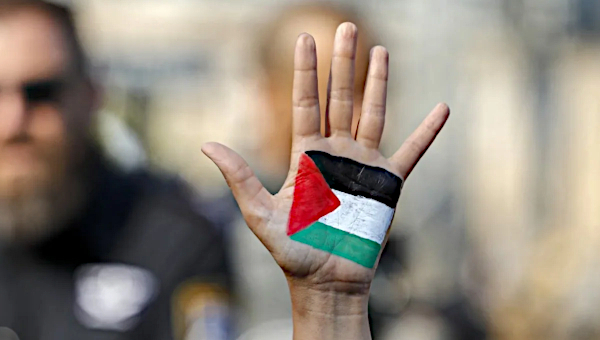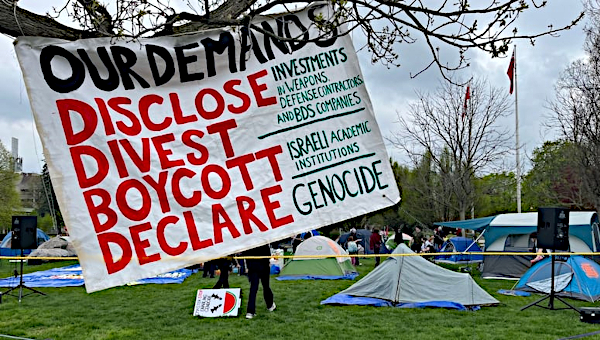Nakba at 75
Nakba is More Than One Day
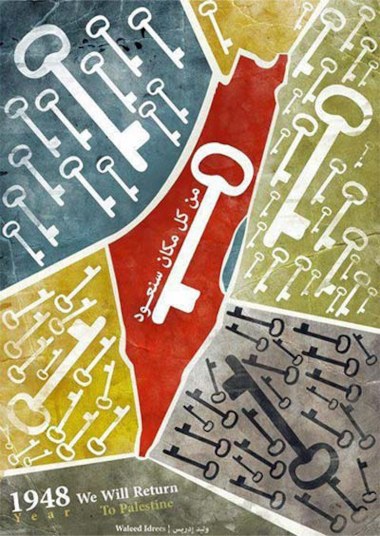
On May 15, 2023, we commemorate 75 years dispossession and violence faced by the Palestinian people, beginning in the late 1940s, and continuing to this day. Palestinians refer to these events collectively as the Nakba, Arabic for “catastrophe,” to describe the devastating and on-going impact on their people, cultural and heritage. Today, Palestinians in Israel live as second-class citizens, those in East Jerusalem and the West Bank live a daily nightmare of occupation, colonization and apartheid, and the Palestinians in Gaza live under a devastating blockade and occupation. With Nakba75Action.org, we draw awareness to the suffering endured by the Palestinian people, admire their resilience, and call for an end to the ongoing Nakba!
Nakba75Action.org is offered as a public action resource. Events taking place anywhere in the world – view events here.
What is the Nakba?
The Nakba, “catastrophe” in Arabic, refers to Israel’s ongoing ethnic cleansing of Palestine, which includes the expulsion and subsequent displacement of Palestinians, the destruction of Palestinian towns and villages, and other attempts to eradicate the Palestinian people from their ancestral homeland in the territory that became the State of Israel. While the term Nakba is often used to refer specifically to the violence against Palestinians that accompanied the creation of Israel in 1948, many scholars consider the Nakba to encompass all acts of persecution inflicted on Palestinians, from the early 1900s to the present day, motivated by the goal of establishing and maintaining a Jewish ethno-state.1 Today, Palestinians continue to face many of the same forms of violence, racism, the confiscation of land, evictions, and other forms of dispossession in both Israel and the occupied Palestinian territories. As such, the situation faced by Palestinians is similar in many ways to that of other indigenous peoples around the world who have been forcibly uprooted, deprived of their land, replaced by foreign-born settlers, and forced to live as second-class citizens in their own country.
What Precipitated the Nakba?
The roots of the Nakba and the ongoing problems in Palestine/Israel today lie in the emergence of political Zionism in the late 1800s when European Jews decided that the solution to antisemitism in Europe and Russia was the establishment of an ethno-state for Jews in Palestine. It is important to note that long before Zionism was founded, Palestinians lived in a thriving, multireligious society in which Palestinian Muslims, Christians, and Jews lived together in Palestine with equal citizenship rights and religious autonomy under the Ottoman Empire.2 Palestinian candidates ran for office in the Ottoman Parliament, where they represented the interests of Palestinian voters. The local Palestinian economy was self-sufficient and incorporated into both regional and international trade networks. Moreover, the local and regional Palestinian identity was salient and formed the basis for an organic independence movement, expressed through newspapers, magazines, civil society organizations, and political parties.3
As the result of many factors beyond the scope of this factsheet, the United Nations approved a plan in November 1947 to divide Palestine into a “Jewish state” and an “Arab state” against the wishes of the vast majority of the native Palestinian Arab population.4 It handed 56% of the land to the proposed Jewish state, despite the fact that Jews owned only about 7% of the private land in Palestine and made up only about 33% of the population, a very large percentage of whom were recent immigrants from Europe.5 On the other hand, the Palestinian state was set to be established on only 42% of historic Palestine despite the fact that Muslim and Christian Palestinians made up a large majority of the population and were indigenous to all of the land.6
This partition plan would have caused “almost half of the Palestinian population – the indigenous majority on its own ancestral soil – to be converted overnight into a minority under alien rule”7 and was, as such, rejected by the Palestinian leadership as well as the Arab league.
Almost immediately after the partition plan was passed, the expulsion and ethnic cleansing of Palestinians by Jewish militias began, months before the armies of neighboring Arab states became involved. The flight of the Palestinian civilian population was accelerated by massacres such as the one that took place on April 9, 1948, at Deir Yassin near Jerusalem, where approximately 100 Palestinian men, women, and children were executed by Jewish terrorists.8 Over several months of fighting, the well-equipped Jewish militias and new Israeli army managed to secure fully 78% of historic Palestine for Israel, while the Palestinian people were largely dispossessed and leaderless.9
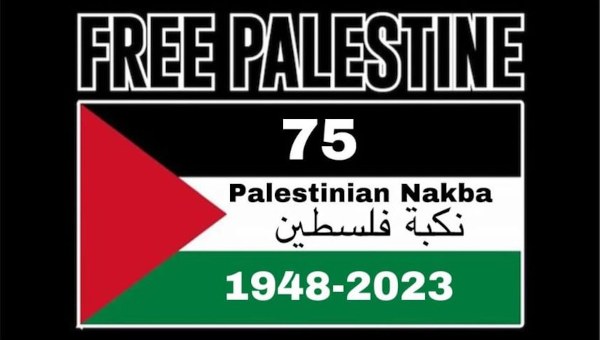
What Are the Consequences of the Nakba?
The most important long-term implications of the Nakba for Palestinians have been the loss of their homeland, their transformation into a stateless people, and the fragmentation and marginalization of their national community and leadership. Approximately 4,244,776 acres of Palestinian land were stolen by Israel during and immediately after the establishment of the state in 1948.10 In the process, more than 400 Palestinian towns were systematically destroyed by Israeli forces or repopulated with Jews.11 This relentless land grab continues today through Israel’s illegal settlement policy. Over the past 50 years, Israel has demolished tens of thousands of Palestinian properties and displaced large swathes of the population to build homes and infrastructure to illegally settle its own population in the occupied territories.12 In 2022, the West Bank had about 199 settlements and 220 outposts.13 Within Israel itself, the government continues to promote the ‘Judaization’ of the Galilee and Naqab/Negev, two regions with significant Palestinian Arab and Bedouin populations.14
Palestinians are, moreover, the largest stateless community in the world. In 1948, there were an estimated 750,000 Palestinian refugees in the world, and there are now currently more than 7 million Palestinian refugees, 5.7 million of whom are registered with the UN Relief and Works Agency for Palestine Refugees in the Near East (UNRWA).15 Palestinian refugees have a right to return to their country as enshrined in UN resolution 194 and the Universal Declaration of Human Rights, but Israel has consistently denied them that right in an effort to maintain Jewish demographic dominance.
The Nakba also left a permanent political impact on the Palestinians. At a collective level they lost their society, and were condemned to live as exiles or stateless subjects under the rule of a foreign military. As a result of the Nakba, no unified political movement emerged for the first two decades after 1948.
How and Why do the Palestinians Commemorate the Nakba?
Palestinians commemorate the Nakba every year on May 15th. The event is often marked by speeches, marches and rallies by Palestinians in Israel, the occupied West Bank and Gaza, in Palestinian refugee camps in Arab states, and around the world. “Through their communal remembrance of the anniversary, Palestinians in the homeland and in the diaspora affirm their unity as a people and renew their lasting commitment to their historical rights, especially the right of return.”16 The horrors of the Nakba are compounded by Israel’s systematic attempts to erase and falsify its memory, including through the enactment of legislation which criminalizes the mere commemoration of Nakba Day as a day of mourning.17 Consequently, for Palestinians, Nakba Day is an opportunity to remind the international community not only of the atrocities of the past but also of the systemic regime of Apartheid that they continue to suffer under today. For the first time in history, in 2023 the UN will commemorate the 75th anniversary of the Nakba.18 However, Palestinians do not only commemorate the Nakba on Nakba day, they do it continuously through various cultural symbols and emblems as well as through literature, art and music. This includes the teaching of traditional handicrafts like embroidery to younger generations; the reverence for olive trees, symbols of rootedness and connection with the land; and the wearing of the kufiyah, which is the white or checkered cloth head covering worn by Palestinian peasants, as the symbol of the Palestinian struggle.19
Does Canada recognize the Nakba?
No. To this day, Canada has still not recognized the Nakba. In Canada, Nakba Day is instead commemorated by civil society groups like Canadians for Peace and Justice in the Middle East, Independent Jewish Voices Canada, and the Association of Arab Palestinian Canadians. A small number of Members of Parliament have also acknowledged the Nakba, including NDP MP Niki Ashton in 2018.20 In 2023, NDP MP Alexandre Boulerice made a statement in Parliament for the 75th anniversary of the Nakba21
In 2022, the Arab-Canadian Lawyers Association (ACLA) published a landmark report defining anti-Palestinian racism as “a form of anti-Arab racism that silences, excludes, erases, stereotypes, defames or dehumanizes Palestinians or their narratives.”22 One of the examples of anti-Palestinian racism identified in the report is Nakba denial, or “denying the Nakba and failing to acknowledge Palestinians as an Indigenous people with a collective identity, belonging and rights in relation to occupied and historic Palestine.” Raising awareness about anti-Palestinian racism is a great first step at countering Nakba denial, which is prevalent in Canadian society. Fortunately, there are recent examples of Canadian institutions finally acknowledging the problem of anti-Palestinian racism. For example, the Peel District School Board recently adopted a strategy to fight Islamophobia which noted that it often intersects with other forms of oppression, including anti-Palestinian racism.23 •
CJPME Factsheet No. 235, published May 2023: This factsheet outlines the Palestinian “Nakba,” or catastrophe, referring to the ongoing ethnic cleansing of Palestine that started with the creation of Israel. It looks at the factors leading up to the Nakba, its ongoing consequences, and how it is commemorated today.
Enough is Enough! End Israeli Apartheid
May 15th marks the 75 anniversary of the Palestinian Nakba (“catastrophe” in Arabic). Nakba Day is observed in Palestine and around the world to commemorate the displacement of hundreds of thousands of Palestinians surrounding Israel’s declaration of independence in 1948. Significantly, 2023 will be the first time Nakba Day is officially observed by the United Nations.
The Nakba is not a historical event, but an ongoing process of ethnic cleansing and colonization. The Zionist dream of a “land without a people for a people without a land” was a lie, and a nightmare for Palestinians. We know that there was a people on the land of Palestine – one with a rich history and culture. On the rubble of destroyed villages, Israel built a nation-state based on Jewish supremacy, and a democracy for some, but not for Palestinians.
Much like in 2021, as we approach Nakba Day this year, Israeli war planes are raining missiles down on the besieged and occupied people of Gaza. Dozens of civilians have been killed, including several children. Their lives cannot be taken in vain. It is incumbent on all of us to do everything we can to put an end to these Israeli war crimes.
As Canadian Jews who stand proudly in solidarity with the Palestinian people, we say that 75 years of so-called “Israeli independence” is nothing to celebrate. The Nakba continues today with every Israeli bomb that falls on Gaza, with every journalist killed in the line of duty, with every Palestinian home demolished and with every brutal attack on a place of worship. Enough is enough.
When Palestinians put the call out to take to the streets, we respond. And we stand with them. Over the coming days, Nakba Day events will be happening across Canada. Find the one closest to you. Join a protest. Look out for Independent Jewish Voices (IJV) contingents and help carry a banner or sign. Talk to people in your synagogue, shul, community, union or school and encourage them to come out with you.
We must speak the truth about the Nakba. And we must turn our words into actions. For a free Palestine. •
Nakba Day demonstrations and events in Canada
- Toronto – May 13, 1:30pm, Younge and Dundas Square
- Ottawa – May 13, 2pm, Human Rights Monument
- Winnipeg – May 13, 2pm, Memorial Park
- Montreal – May 14, 2pm, Israeli Consulate (1 Westmount sq.)
- Vancouver – May 14, 1pm, Vancouver Art Gallery
- Edmonton – May 14, 4pm, Victoria Park
- Kitchener-Waterloo – May 14, 1pm, Waterloo Public Square
- St-John’s, NL – May 14, 6pm, Colonial Building
- Quebec City – May 15, 11:30am, 65 rue Sainte-Anne
- Montreal – May 15, 11:30am, 1000 place Jean-Paul-Riopelle
- Toronto – TPFF Nakba Commemoration event, May 15, 5:30pm, Innis Town Hall Theatre
- Kingston – May 15, 7pm, Springer Market Square
- Saskatoon – May 15, 2pm, Broadway and 10th Street
Endnotes
- “The Nakba and Palestine Refugees: IMEU Questions and Answers,” Institute for Middle East Understanding (IMEU), May 5, 2022.
- Ibid.
- Ibid.
- “Quick Facts: The Palestinian Nakba (‘Catastrophe’),” IMEU, April 5, 2023.
- “Fact Sheet: The Palestinian Nakba & The Establishment of Israeli Apartheid,” IMEU, May 8, 2013.
- “Quick Facts: The Palestinian Nakba (‘Catastrophe’),” IMEU, April 5, 2023.
- Benny Morris, “Righteous Victims: A History of the Zionist-Arab Conflict, 1881-2001,” 1999.
- “Plan Dalet: A Blueprint for the Ethnic Cleansing of Palestine,” IMEU, May 8, 2013.
- “Quick Facts: The Palestinian Nakba (‘Catastrophe’),” IMEU, April 5, 2023.
- Ibid.
- Ibid.
- “Israel’s Occupation: 50 years of Dispossession,” Amnesty International, 2017.
- “How Israeli Settlements Impede the Two-State Solution,” Carnegie Endowment for International Peace,” March 7, 2023.
- “Israel’s new government plans to ‘Judaise’ Galilee and Negev,” Middle East Eye, December 25, 2022
- “The Nakba and Palestine Refugees: IMEU Questions and Answers,” IMEU, May 05, 2022
- “The Nakba: Stages of a Forced Displacement,” Interactive Encyclopedia of the Palestine Question, 2023.
- Yifat Gutman and Noam Tirosh, “Balancing Atrocities and Forced Forgetting: Memory Laws as a Means of Social Control in Israel,” Law & Social Inquiry, August 2021.
- Commemoration of the 75th anniversary of the Nakba at UN Headquarters in New York, United Nations.
- Michael Fischbach, “The Impact of the 1948 Disaster: The Ways that the Nakba has Influenced Palestinian History,” Heinrich Böll Stiftung, 2010.
- Morgan Duchesney, “Who will commemorate the Nakba in Canada?” Briarpatch Magazine, May 14, 2018.
- Alexander Boulerice, House of Commons, Parliament of Canada, May 9, 2023.
- Arab-Canadian Lawyers Association, “Anti-Palestinian Racism: Naming, Framing and Manifestations,” April 2022.
- “This school board just became the 1st in Canada to adopt a strategy to fight Islamophobia,” CBC News, January 26, 2023.


